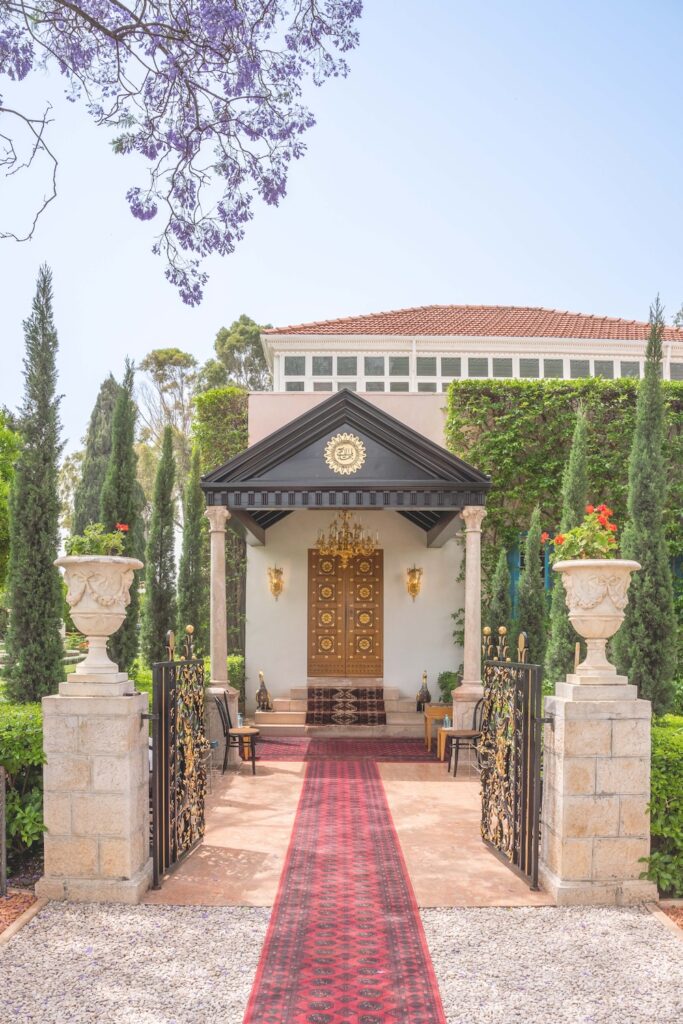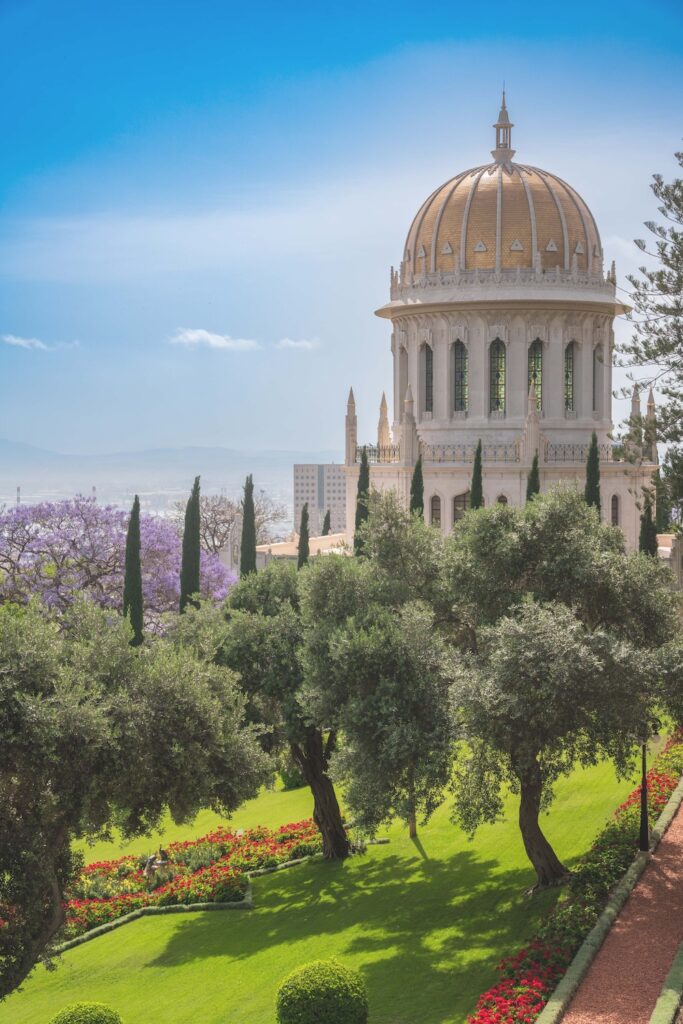Bahá’u’lláh, founder of the Bahá'í Faith
Bahá’u’lláh was born in November 1817 in Tehran, Iran. As a child, he displayed signs of grandeur and wisdom. Bahá’u’lláh is a title that means “the Glory of God” in Arabic.
As a young man, Bahá’u’lláh decided to dedicate His life to charitable actions.
Bahá’u’lláh’s father was a minister in the court of the Sháh. When his father died, Bahá’u’lláh declined the ministerial career that was available to Him. Instead of a life of power and leisure, He chose to devote His energies to philanthropic and charitable actions.
Bahá’u’lláh had a life of difficulties and tribulations
Bahá’u’lláh endured tribulations throughout His life. He was exiled four times in his lifetime. His last place of exile was Akká, a prison-city in Palestine, governed by the Ottoman Empire. Bahá’u’lláh’s life was marked by suffering, exile, and persecution.
Bahá’u’lláh’s light illumined the whole world
The further Bahá’u’lláh was exiled, the more people were attracted to His teachings, power and majesty. He revealed the Word of God in the form of prayers and tablets for forty years. Bahá’u’lláh brought love and spiritual energy to the world.
The holiest place on earth: Bahá’u’lláh’s Shrine
Bahá’u’lláh passed away in 1892 in Akká and for Bahá’ís, His Shrine is the holiest place on earth.


The Báb, bearer of hope
The Báb was born in 1819 in Persia, modern day Iran. He was a young merchant whose title means “the Gate” in Arabic.
In 1844, the Báb announced that He was the bearer of a message destined to transform humanity. At that time, Persia was undergoing widespread moral breakdown; the Báb’s message aroused excitement and hope and rapidly attracted thousands of followers.
Calling for a spiritual renewal
The Báb called for spiritual and moral reform. The Báb’s precepts for spiritual renewal were revolutionary, as He worked to improve the position of women and the living conditions of the poor.
The Báb founded His own distinct and independent religion and inspired His followers to transform their lives and perform great, heroic deeds.
The goal of His mission was to prepare humanity for the coming of Bahá’u’lláh.
The martyrdom of the Báb
The Báb’s revolutionary message caused the anger of civil and religious authorities, leading to the persectution of many of His followers. He was martyred in 1850 by a regiment of soldiers.
Bahá’u’lláh Himself designated the slopes of Mount Carmel in Haifa as the Báb’s final resting place.
‘Abdu’l-Bahá, the Perfect Exemplar of the teachings of Bahá'u'lláh
‘Abdu’l-Bahá was born in 1844. He was Bahá’u’lláh’s eldest son and the head of the Bahá’í Faith upon the passing of His Father. He was renowned as a champion of social justice and an ambassador for international peace.
‘Abdu’l-Bahá: the Successor of Bahá’u’lláh
In His Writings, Bahá’u’lláh instructed all to turn to ‘Abdu’l-Bahá as the authorized interpreter of the Bahá’í Writings after His own passing. ‘Abdu’l-Bahá is also considered as the perfect exemplar of the Faith’s spirit and teachings. As Bahá’u’lláh Himself designated ‘Abdu’l-Bahá as His Successor, He ensured that the unity of the Bahá’í Faith was upheld.
‘Abdu’l-Bahá: the Perfect Exemplar
‘Abdu’l-Bahá’s extraordinary qualities of character and service to humanity offered a vivid demonstration of Bahá’u’lláh’s teachings in action. He promoted the ideals of peace and unity, and encouraged the establishment of local Bahá’í institutions. He also guided nascent educational, social and economic initiatives. ‘Abdu’l-Bahá spent most of His life in prison for His religious beliefs. When He was released, He travelled to Egypt, Europe and North America, promoting the Cause of peace and justice. He passed away in November 1921.
Learn more on the life ‘Abdu’l-Bahá on the official website of the Bahá’í Faith


Reading the Writings of the Bahá'í Faith
To gain a fuller appreciation of Bahá’í beliefs, you can visit the Bahá’í Reference Library. It contains
- Writings of Bahá’u’lláh
- Writings of the Báb
- Writings of ‘Abdu’l-Bahá
- Writings of Shoghi Effendi
- A selection of statements and communications of the Universal House of Justice

